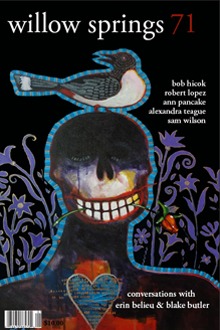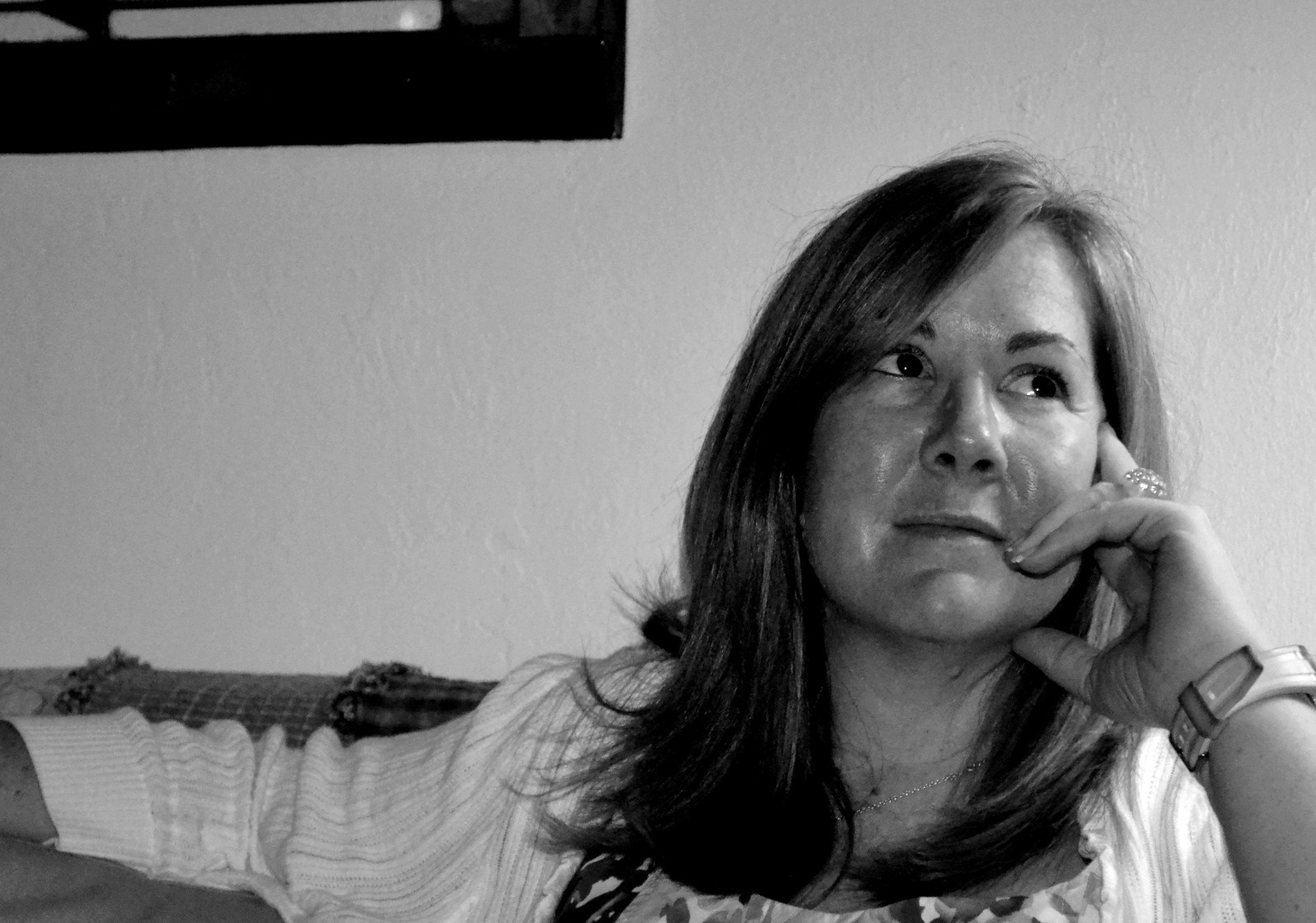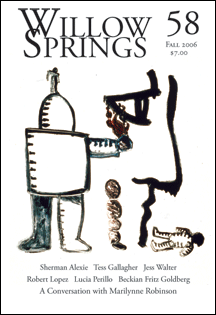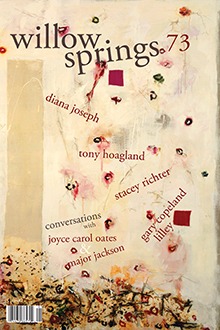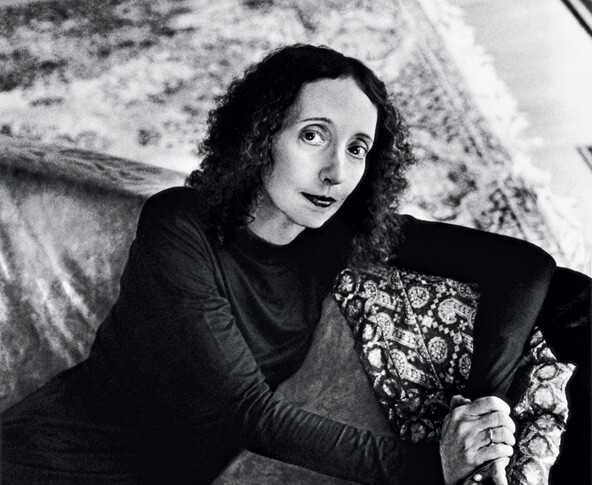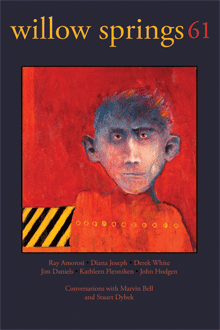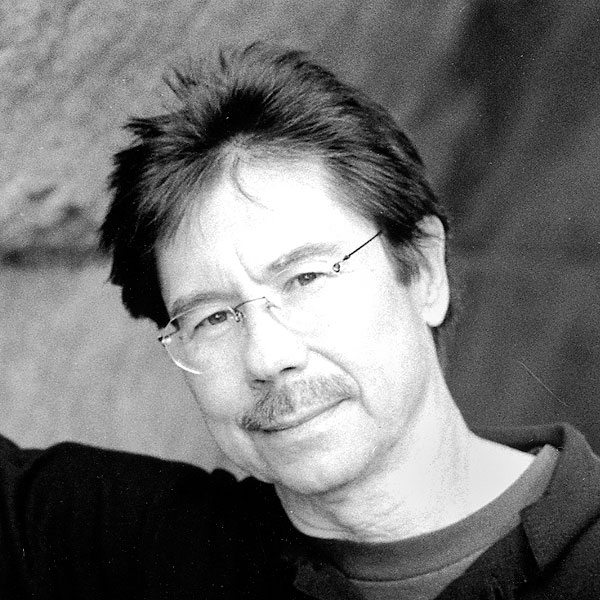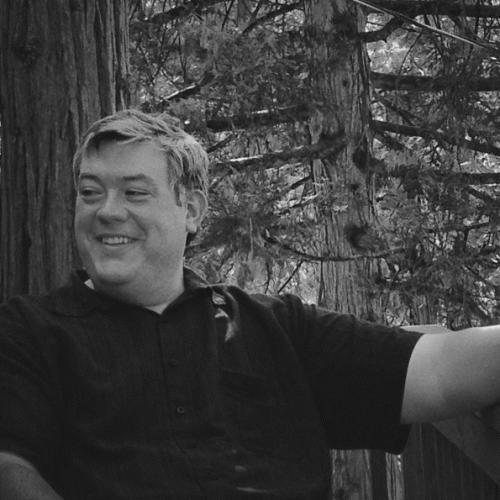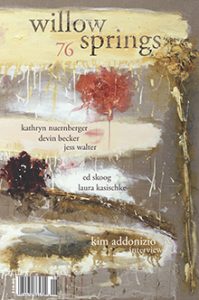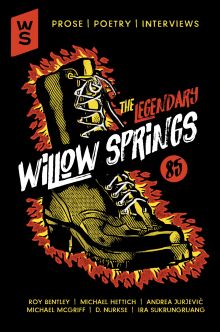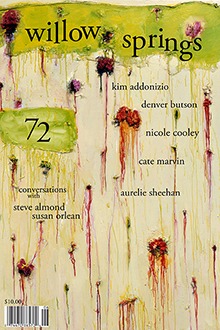
Found in Willow Springs 72
April 12, 2012
CHRIS CULLEN, LEYNA KROW, JOE SLOCUM
A CONVERSATION WITH SUSAN ORLEAN
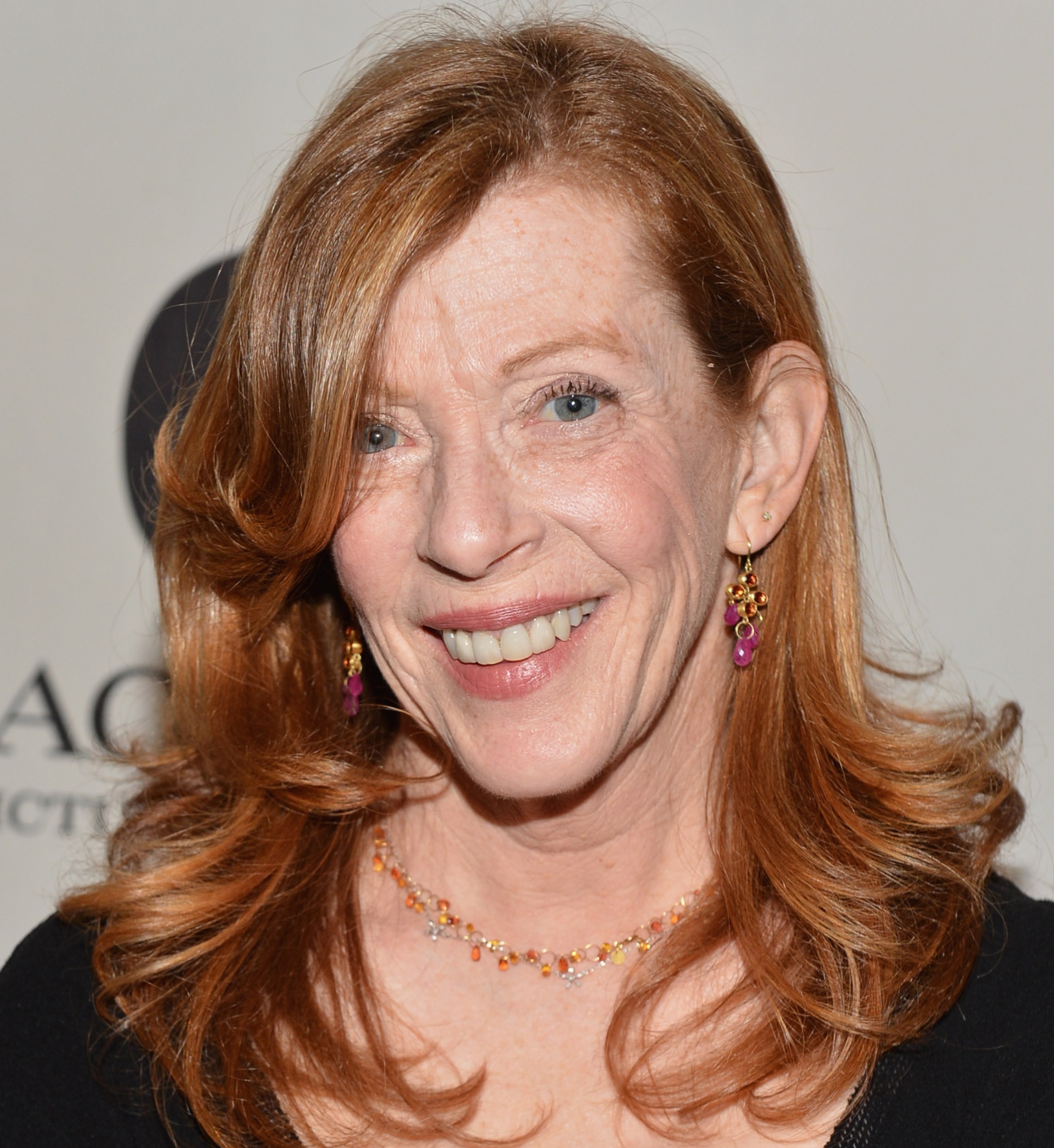
Photo Credit: Getty Images
Susan Orlean’s profiles and features bubble with a kind of humor and empathy that seems effortless—as if Orlean has, time and again, simply stumbled upon someone living the most fascinating life, and she can’t wait to tell readers about it. She makes the extraordinary seem familiar, such as in the article “Lifelike,” when she visits the World Taxidermy Championships and finds the participants no different than any other community of likeminded enthusiasts. And she can make the familiar seem extraordinary, as in “The American Male at Age 10” in which she reveals the precocious oddity of even the most typical pre-teen boy. These are the kinds of stories Orlean seeks to share. As she notes in the introduction to her collection The Bullfighter Checks her Makeup:
What I wanted to write about were the people and places around me. I didn’t want to write about famous people simply because they were famous and I didn’t want to write about charming little things that were self-consciously charming and little; I wasn’t interested in documenting or predicting trends and I didn’t have polemics to air or sociological theories to spin out.
Rather, she wanted to write “stories that move at their own pace.” And that’s exactly what she’s done the last three decades. She’s made a career of telling small stories, slow stories, and strange stories in a way that makes them matter as all nonfiction should matter—in a human way.
Orlean is the author of The Orchid Thief, My Kind of Place, and Saturday Night, among other books, and, most recently, Rin Tin Tin. She’s been a staff writer for the New Yorker since 1992 and her work has appeared in Rolling Stone, Vogue, Esquire, Outside, and numerous other publications. She says her desire to write is strongly connected to her “desire to know.” Curiosity leads her to her subject matter and propels her through each piece. This, she insists, is crucial for any writer. Her advice to those starting out: “If you’re not interested and you’re not inquisitive and you don’t think you’ll ever be inquisitive, don’t be a writer.” We met with Ms. Orlean during the 14th annual GetLit! Festival in Spokane, where she talked about the benefits of being an outsider, the trick to being both funny and kind at the same time, and why nonfiction writers shouldn’t be afraid to let themselves get lost.
LEYNA KROW
In both The Orchid Thief and Rin Tin Tin, I was impressed with your ability to go big. Rin Tin Tin is a story about a dog, but it’s also about World War I and early Hollywood and the evolution of dogs in the American family, providing insight into all these different things. Many contemporary nonfiction writers aren’t willing to stray so far from their topic. Why are you?
SUSAN ORLEAN
I’m really interested in specific stories—the minutia of a particular story. But I can’t help but see how a story radiates beyond its tiny particulars, especially with a book project. Rin Tin Rin is a particular story about a dog and a guy who owned that dog, but that guy was a product of his moment in history—the turn of the century—and of orphanages, of being a fatherless boy, of living through World War I. It’s all connective tissue. I think surgically removing a narrative from the tissue of what it’s part of makes you lose an awful lot. You don’t want to portray just the tissue because that’s not a good way for people to understand the story. For a reader, it’s much more engaging to connect with a particular individual and a particular narrative—an explicit journey.
I love the idea that you’re gently moving readers into those big stories. If you were to say, “By the way, I’d like to conjure for you an idea of what World War I might have been like for a young man as a soldier,” a lot of people would be like, Sure, it’s interesting, but it’s so abstract, so removed, as opposed to identifying with a single guy who could have lived in any point in time, a fatherless boy and the loneliness he might have felt. And then you put him in the context of this era and suddenly, for me, I began to think, Oh, that’s what World War I was like. It makes more sense to me, and the big picture becomes more vivid because I begin to imagine it more particularly.
I don’t know why people don’t make that leap more. I don’t know whether there’s a self-consciousness about thinking, Does this sound like I’m trying to be profound? Who am I to tell you that this is about the essential American conflict, or the character of World War I? I’m no expert on this. I think you have to take a deep breath and feel that confidence. It requires a kind of bold push beyond a particular story—not only in historical bigness, but also some of the emotional and conceptual bigness. And I wouldn’t want to write a story about a dog if I didn’t feel it meant more.
CHRIS CULLEN
How are you able to know when a story is about one thing but also bigger issues? When do you start to figure out those bigger issues?
ORLEAN
That’s a tricky thing. Ideally, you want to come to that realization in an authentic way. You don’t think, Oh, I’ll write about Rin Tin Tin because this is also about the theme of….” That’s where it begins to feel artificial, like you sort of pulled something off of the philosophy and spirituality shelf and slapped it into a story. I think it comes after you do the reporting on the story, but before you sit down to write, when you’re spending a lot of time thinking, What did I learn here? And why was this interesting? And organically, it seems, you sort of emerge into the realization that there’s more to it. Because, initially, it always is the little story. You think, Oh, Rin Tin Tin was a real dog? That’s so cool. What a crazy, great story. And I like dogs, so this is good. Rather than, At the same time, I can have this do double duty. That feels false to me. I think it really is a natural growth out of the time you spend thinking before you start writing, when you’re asking yourself: What really was interesting about this story?
KROW
Do you ever start writing about something, and think, This is the bigger thing I’m going to pull in. And then find out you’re wrong?
ORLEAN
Oh, yeah. You’re frequently wrong. In fact, being wrong is a part of it. I think it’s valuable to start off thinking a story is going to be one thing and then it becomes another, because that means you’re actually learning. If you think the story is about X and the story remains about X from beginning to end, it makes you wonder, Did I really learn anything? If you already knew what it was about, maybe it wasn’t that good of a story.
Maybe it wasn’t that interesting. That’s why the realization of the bigger story, if it comes early, makes me worry. Sometimes it’s not until the very end that you begin to realize something’s out of focus, slowly coming into focus. Suddenly, you see it.
I don’t think you’re really open to a story if you’ve decided what it’s about before you’ve learned it. If you think you know, you should probably consider whether the story is genuinely challenging. You should feel lost in a story. It’s a good part of the process. It doesn’t feel very good at the time, but it’s a useful part of it. Just to think, What on earth did I have in mind? Why did I do this? People don’t like that feeling, but I think it’s a sign that you’ve wandered into places you weren’t expecting to go.
JOE SLOCUM
Is there a specific project you can think of that didn’t work out so well? A place where you got too lost?
ORLEAN
That I actually ended up writing, or that I abandoned?
SLOCUM
Either.
ORLEAN
I’ve had a couple of stories that I’ve wanted to abandon. “The Bullfighter Checks Her Makeup” was one of them. I was ready to bail on that one, because the person I had been dealing with and who had guaranteed me an interview with Christina Sanchez turned out to be a fraud and didn’t represent her. I found myself in Spain and suddenly had no access to her. I was going to come home, but my editor said, “Just hang out for a day or two and see if you can figure something out.” I was very unhappy because I had thought this was a complete bust. I felt self-conscious too, because it was my first story for Outside magazine, and I thought, Oh, God, this is really embarrassing. I think that threw me back on my wits a lot more than dealing with an agent who was going to set it all up for me. I had to think, What is going on in this woman’s life right now that she has a guy posing as her agent? What is the nature of this fame and what does it mean?
Scrambling to find her and doing what I could to somehow connect with her pushed me more. That happens—where you end up somewhere and the people you thought were going to be really interesting and helpful aren’t. And it doesn’t always work out well. There are times when it’s like being on Outward Bound. You have a match and you have a compass and you think, Okay, let me figure this out.
SLOCUM
When it does work out, like in “Lifelike” where you’re at the World Taxidermy Championship, how do you pick the taxidermists to go have ribs with? How do you find the right people? Is it kind of a stumble?
ORLEAN
It is a stumble. That instance was one where I went in with no preparation; I just wanted to go. I think I might have talked to the organizers, but basically I just went. And again, that was a period of feeling a bit lost. In that case, it was a really wonderful and good stroke of luck that they were great, which is not to say that had I gone out to dinner with another set of taxidermists, they wouldn’t have been equally great. But I do feel like I have pretty good radar in that way.
I don’t know what it is—if it’s something I’m picking up on or some combination of data I’m processing. When I’m at the World Taxidermy Championships and tons of people are roaming around, I seem to have pretty good instinct for who to talk to. It may be that everyone at that event was interesting. I’ll never know. I don’t mean to be vain about it, but I feel like whether it’s that they were working on a mount I thought was cool, or they were nice, or they were funny and articulate, or they were weird—I couldn’t tell you what it is—but I connect with people who, fortunately, often turn out to be really interesting. Being a writer in this regard means that you have to be a quick learner. You don’t have a lot of time to sniff out a situation and figure out what’s going to be interesting.
KROW
That makes it sound like you have an innate sense for what you do, which makes me think this isn’t something someone can practice hard enough at or be diligent about and then become like Susan Orlean. Is this maybe a natural gift for gleaning information from people and places?
ORLEAN
I think it’s a combination. There is a lot to learn, but I think some of it’s just imbedded in who you are. If you’re somebody who’s not a good observer, you’re probably never going to learn it. You get better and better at it the more practice, but if you don’t have at least some instinct for that—walking into a room and sorting it out and figuring out what’s going to be interesting and what’s not—I don’t know how much you can learn. I think you can get a lot of good experience and I think you can improve by success and failure, but my guess is that at least something in there is just who you are. That sounds discouraging. I don’t mean that. There’s a lot of craft in writing, and there’s a lot of art. You can improve the craft and the art, but there’s an essential piece of it that is who you are. I’ve often said to my students, “If you’re a boring person, don’t be a writer.” If you’re super boring, you’re going to be a boring writer, and I’m sorry to break it to you, but that’s probably not going to change. If you’re not interested and you’re not inquisitive and you don’t think you’ll ever be inquisitive, don’t be a writer. There’s a great deal to learn, but there are certain things that you just come to the table with.
CULLEN
You have a tendency to go back and forth between being an insider and an outsider in your pieces. In “Animalish,” you write about what makes New England “New England,” and you’re not from New England. How does that process work?
ORLEAN
I feel like I’m at my best when I’m an outsider. The emotional challenge of being a stranger and an outsider seems to bring something out in me, and it’s that I’ve got to be a quick study. Nobody likes being the outsider, but being in that position seems to spur me. Also, I’m fascinated by the challenge of thinking, This isn’t my world, I don’t understand it, and in some cases I may not even think I like it, but can I penetrate it and can I find empathy for it?”
I’m so curious about that. I’m interested in things that other people bring lots of emotion and meaning to that I don’t understand. How does someone care about children’s beauty pageants, for example? It’s so alien. It’s like travel writing—the same reason we like reading about somebody going to a foreign country. That otherness is an essential piece of it to me. I’m traveling into subcultures, not necessarily just different physical places.
Then sometimes it’s a contrarian thing. I’ll be somewhere and think, What ends up drawing people here? It’s not the prove-to-me-why-this-is-valuable thing. It’s more me wondering if I can bring myself to understand something that feels so other.
KROW
Again, it feels like you have a natural ability in situations that are maybe weird or distasteful to call people out without being mean or cruel. That seems hard.
ORLEAN
I don’t have to worry about being mean, because it doesn’t come from that part of me. I can be very mean in my personal life. And it’s not that I think everything’s beautiful, and I love it. It’s that wanting to know and wanting to understand feels absolutely intact as a value in and of itself. I think this is something I don’t have to work at—it’s just wanting to know. It doesn’t mean I have to like it or want to do it; it doesn’t mean I’m promoting it, but isn’t it good to just know? Do I want to put my kid in a beauty pageant? God forbid! But I want to know why someone would do it and what it’s really like. What does it feel like to be there? Why do people care about it? Even something that’s horrible. If someone said to me, “I can get you into a Ku Klux Klan training camp,” I would say, “I want to know.” Not just that it’s a great story, because obviously it would be, but on a personal level. I’m sure there are a few things I would find so distasteful I couldn’t do them. But generally, and I hate sounding simplistic, but I just want to know. I think most of the ills of the world emerge from people not wanting to know, and making assumptions and forming opinions without knowing. Xenophobia and the fear of otherness, to me, is the most limiting, life-deflating emotion.
So I’m not saying we’re all one big happy family. Not at all. And it’s not that I don’t have opinions, because I definitely have opinions. A good example of that was with “The Bullfighter Checks Her Makeup.” I used to think, Why would anyone go to a bullfight? It’s the most disgusting thing. But then I thought, I’ve never actually been to a bullfight. I still don’t wish to go, but I have a completely different feeling about it now. I don’t look at the people who like it with that same arrogance, like, You’re monsters because you go to a bullfight. I was able to put it into a context of understanding why a lot of people feel good about it.
I think that’s important, to separate any natural reaction I might have from the idea that you’re never harmed by knowing more about something. That’s what I want readers to do. In many cases, I want them to read about something about which they truly might have thought: I don’t want to know about this; I don’t understand why this would be interesting. I like the idea of coming to the subject resisting, and coming out the other side understanding. This is a strange and sometimes distasteful and sometimes just weird world. I’m not looking to change opinions. I just want to say, “You know what? It’s good to learn about it.”
SLOCUM
Does this wanting to learn help you overcome fear in certain situations? Because, as a reader, sometimes I think, Oh, no, Susan, don’t do that. Like in Saturday Night when you’re trying to follow the drug dealer around. Or when you’re hiking in the swamp with convicts with machetes in The Orchid Thief. Does wanting to have the experience help you overcome natural fear?
ORLEAN
Absolutely. There’s a lot of stuff I read afterward and think, Oh, my god! I actually think that’s why you see journalists being killed in combat situations. You feel— not protected by your desire to learn, but you drop away some of the fears that would normally be there. I remember going up to the south Bronx by myself at three in the morning to go to an African dance party. I was waiting for a cab and I had a moment of thinking, This is kind of crazy.
For me, the defining experience is realizing I definitely don’t want my mother to know this. That’s when I know I’m doing something I wouldn’t do in normal circumstances. I mean, I’m a cautious person—and I would normally think, I’m not going to the south Bronx at three in the morning. That’s crazy—foolhardy. But when I’m doing a story, I feel like, That’s great, you’re going to let me come? Terrific, I’ll go. And every now and again, I do have this little worry that I’ve lost some perspective. There have been times when I’ve thought back, when I’ve had circumstances where I was traveling alone for a story—and it is different for women. Someone knows you’re traveling alone and you should think, Wait a minute, this is a little weird. I really need to take care of myself. But when it’s happening, you’re thinking, This is really cool that I get to do this. This is really interesting for the story.
KROW
You yourself are a character in most of your pieces. How do you limit your presence on the page, and how do you know where you belong and where you don’t?
ORLEAN
Assuming that I actually do know where I belong—
KROW
It feels like you know.
ORLEAN
This is a question that comes up frequently. And I think for a number of reasons. First of all, for less experienced writers, it’s a leap that they find difficult to make. People are interested in how you know how much to insert yourself, and why you do it. I think there are two or three rules of thumb. Sometimes, it’s a mechanical solution. You need to move the reader from one place to another, or introduce someone. You can go around it in the most contorted way imaginable, or you can just very simply, by presenting yourself in the narrative, make this happen and have it be a seamless, un-distracting structural thing.
The first story in which I felt that solved a problem for me was the story I wrote about a supermarket in Queens. I was having problems structuring it, and then I just allowed myself to be there as the person hovering and taking you around. It wasn’t about me, and it didn’t need to be about me, but it seemed so natural to just present it as a person watching this world unfold. It solved all these structural problems.
The other thing is voice. The model I return to over and over again is, How would I tell this story to people out loud, informally, sitting at a table? I would tell them a story with as much factual information and historical information and description of other people as possible. But inevitably, and naturally, I would be there. You know I’m telling the story. It seems kind of phony to write it as if it dropped out of the sky onto the page. I’m writing it; I’m telling it to you. Some of it is going to be my thinking about what made the story interesting or meaningful, so it’s the voice of the person saying, “I want to tell you about this incredible story I learned.” And there are long stretches where I don’t tell you I’m there. But then, when I step back in, you won’t be shocked, because you’ve been reminded through tone that I’m the one telling you. There are lots of ways you can write a piece that make it clear you’re telling it without it being first person. And so when the first person appears, it’s not a jolt. It’s just a tweak of tone, I think.
CULLEN
Do you think about persona and what self you show on the page? Like, What Susan Orlean am I going to be in this situation?
ORLEAN
Yes and no. I think the self you show in the long run is going to be true to who you are. If you read a lot of John Mcfee, you can probably think, I have a feeling I know this is sort of what he’s like. And the fact is, you’re right. Joan Didion doesn’t say, “I’m this person, I’m that person.” But the persona that emerges is true to who she is. I don’t know how much you can actually create a totally artificial persona. I think you can try to emphasize what part of your personality is going to emerge, but a lot of it’s out of your control. It’s just going to happen.
I don’t have any idea what people think I’m like based on my writing. In the best sense, it becomes something you’re not controlling. It may be helpful as an exercise when you’re initially trying out the experience of writing yourself into stories to think of a persona, but ultimately it’s going to be who you are, unless you really create a very dramatic alter ego that is full of personality. But I don’t enjoy reading that kind of writing. Hunter Thompson really was as he presented himself. But when you read people doing fake Hunter Thompson, you think, That’s so annoying; shut up and tell the story.
There are a lot of different kinds of personalities in writing, and as you get more used to being the narrator of your stories, your readers are going to get to know you, and it should be, in certain ways, invisible to you.
SLOCUM
I want to go back to the grocery story piece, “All Mixed Up,” for a minute. You’re often very funny, but at the same time you balance humor with meaning. In that piece, you have a long section where we’re not even in the grocery store—you’re walking to your car and there’s a flyer that looks like a twenty dollar bill, and you take some time on the page to be really candid and clever and just you. How do you manage being funny without being funny just for the sake of being funny?
ORLEAN
I’m not somebody who likes to tell jokes, but I do find a lot of things hilarious. Like that particular instance—it was really funny, and partly at my own expense, which I found even more delightful. Even pieces that are serious can be an opportunity to make fun of yourself and to find the whole enterprise of the story and the circumstances funny. Sometimes, it’s my blunders that I find funny.
I feel like writing humor is important. Sometimes, it’s the stuff you would discard from the story, the goofs. It’s useful to begin training yourself to realize that sometimes those moments are funny and are a way of talking to the reader about your blundering efforts to do this serious story. Because that was a serious story. Serious is the wrong word, but I was trying to tell about this community and also this touching story about family businesses, and the way they turned inside out with upward mobility, and the marvelous harmony of a really diverse neighborhood. At the same time, I couldn’t help but think, I’m spending six weeks in a grocery store. I am so weird. I can’t believe this.
I think feeling loose is something that comes with experience and looseness is often where you get the humor that’s not just a joke. There’s almost never a story where there isn’t a certain amount of that. So much of what you gain in writing, the more you write, is confidence—feeling like you can make mistakes and admit to the reader doubts or make asides. You can ramble a little, and you can catch yourself and go back, or you can talk about being puzzled, or making a goof that’s a little embarrassing. This story about the supermarket—well, it’s a really amazing world, and I’m going to blunder along and I can tell you out of the corner of my mouth things that are embarrassing or funny.
It’s just nerves. And it takes experience to get to that. I’m not sure I would feel that comfortable with someone who’s just getting started who had that much nerve. Because I think you want to feel that you’ve earned it somehow.
When people say, “Why would you write that?” my answer is, “Because it’s interesting.” Because I really want to tell you and I think you might listen if I tell it to you in a compelling way. I don’t know if that really answers the question of humor. I think though it does go to this bigger issue of beginning to see yourself as a storyteller, and the reader as someone who is listening and saying, “Tell me a story.” And within that contract you make with the reader, you can go a lot of places.
